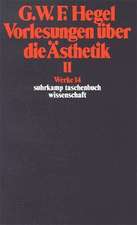
Cărți de Georg Wilhelm Friedrich Hegel

Georg Wilhelm Friedrich Hegel (; German: [ˈɡeːɔʁk ˈvɪlhɛlm ˈfʁiːdʁɪç ˈheːɡl̩]; 27 August 1770 – 14 November 1831) was a German philosopher. He is considered one of the most important figures in German idealism and one of the founding figures of Western philosophy, with his influence extending to the entire range of contemporary philosophical issues, from aesthetics to ontology and politics, both in the analytic and continental tradition.
Hegel's principal achievement was the development of a distinctive articulation of idealism, sometimes termed absolute idealism, in which the dualisms of, for instance, mind and nature and subject and object are overcome. In contrast to Immanuel Kant, who believes that the subject imposes rational a priori pure concepts of understanding upon the sense-data of intuitions, Hegel believes that the pure concepts are grounded in reality itself. Pure concepts are not applied subjectively to sense-impressions, but rather things exist for their concept. The unity of concept and reality is the Idea. The idea itself is dynamic, active, self-determining, self-moving, and purposive. The idea properly exists as life. In life, the parts of the body are unified for the final cause of actualizing the living organism. Non-organic nature is also grounded in the concept, but is only “latent” and not fully self-determining. Geist, or Spirit is the highest form of life and the idea. Geist is the collective purposive agency and genus of man. Geist is equally substance and subject, meaning that geist is not only a living organic substance, but also a subject involved in complex normative and social spaces. Hegel is also known for his dialectical logic, which is mostly contained within his Science of Logic. In this book, Hegel creates a presuppositionless logic of pure thought, which begins with pure being. In the logic, positions and ideas are examined and revealed to be immanently contradictory. The contradiction within the position and itself is sublated (In German, it is called Aufhebung), in which a new position is posited which negates the previous position's contradiction. An example of sublation is the contradictory nature of pure indeterminate being. Pure being is revealed to be both equal to and different from nothing. This contradiction within being is resolved with its sublation into becoming, in which nothing passes into being and being passes into nothing. However, becoming also reveals its own contradictions and is sublated into determinate being. The logic progresses along through contradictions and sublations until there are no more contradictions that can be sublated. This is the absolute, which for Hegel is the idea.
Hegel influenced a wide variety of thinkers and writers. For example, theologian Paul Tillich wrote that the historical dialectical thought of Hegel "has influenced world history more profoundly than any other structural analysis." In his work Systematic Theology, Tillich referred to Hegel's work as "perfect essentialism," later writing "essentialism was in Hegel's system fulfilled." Karl Barth described Hegel as a "Protestant Aquinas" while Maurice Merleau-Ponty wrote that "all the great philosophical ideas of the past century—the philosophies of Marx and Nietzsche, phenomenology, German existentialism, and psychoanalysis—had their beginnings in Hegel." Michael Hardt has highlighted that the roots of post-structuralism and its unifying basis lies, in large part, in a general opposition not to the philosophical tradition tout court but specifically to the "Hegelian tradition" dominating philosophy in the twentieth century prior to post-structuralism.
Hegel's work has been considered the "completion of philosophy" by some of the most influential thinkers in existentialism, post-structuralism, and twentieth-century theology. Jacques Derrida wrote of Hegel in his work Of Grammatology that "if there were a definition of Différance, it would be precisely the limit, the interruption, the destruction of the Hegelian dialectical synthesis wherever it operates." Martin Heidegger observed in his 1969 work Identity and Difference and in his personal Black Notebooks that Hegel's system in an important respect "consummates western philosophy" by completing the idea of the logos, the self-grounding ground, in thinking through the identification of Being and beings, which is "the theme of logic", writing "[I]t is... incontestable that Hegel, faithful to tradition, sees the matter of thinking in beings as such and as a whole, in the movement of Being from its emptiness to its developed fullness." Heidegger in various places further stated Hegel's thinking to be "the most powerful thinking of modern times."

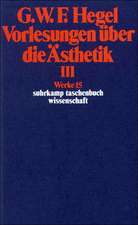
Vorlesungen über die Ästhetik III

Jenaer Schriften 1801 - 1807

Lectures on the History of Philosophy, Volume 1: Greek Philosophy to Plato
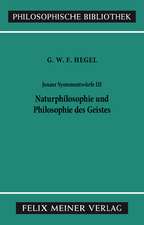
Jenaer Systementwürfe III

Vorlesungen über die Geschichte der Philosophie 3

Wissenschaft der Logik I. Erster Teil. Die objektive Logik. Erstes Buch
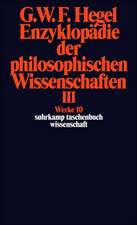
Enzyklopädie der philosophischen Wissenschaften III im Grundrisse 1830

Wissenschaft der Logik II. Erster Teil. Die objektive Logik. Zweites Buch. Zweiter Teil. Die subjektive Logik

Phänomenologie des Geistes
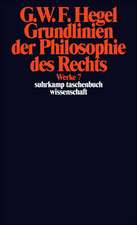
Grundlinien der Philosophie des Rechts oder Naturrecht und Staatswissenschaft im Grundrisse
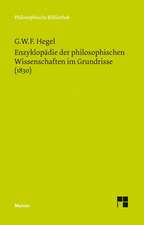
Enzyklopädie der philosophischen Wissenschaften im Grundriss (1830)

Enzyklopädie der philosophischen Wissenschaften I im Grundrisse 1830

Vorlesungen über die Geschichte der Philosophie I
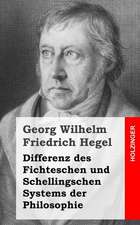
Differenz Des Fichteschen Und Schellingschen Systems Der Philosophie
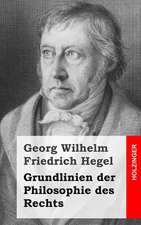
Grundlinien Der Philosophie Des Rechts

Vorlesungen über die Philosophie der Geschichte.
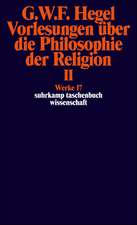
Vorlesungen über die Philosophie der Religion II. Vorlesungen über die Beweise vom Dasein Gottes
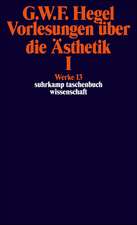
Vorlesungen über die Ästhetik I
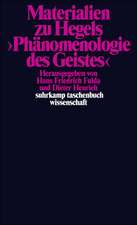
Materialien zu Hegels Phänomenologie des Geistes
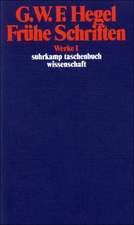
Frühe Schriften
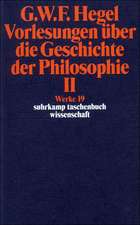
Vorlesungen über die Geschichte der Philosophie II
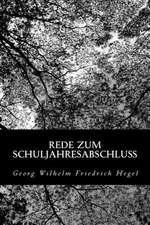
Rede Zum Schuljahresabschluss
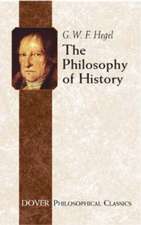
The Philosophy of History
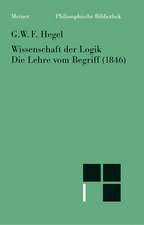
Wissenschaft der Logik 2. Die Lehre vom Begriff (1816)
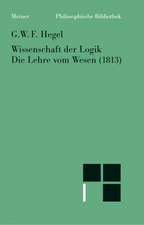
Wissenschaft der Logik. Die Lehre vom Wesen (1813)
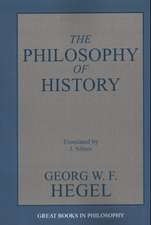
Philosophy of History
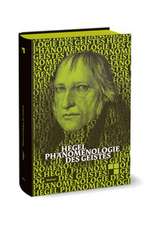
Phänomenologie des Geistes. Sonderausgabe
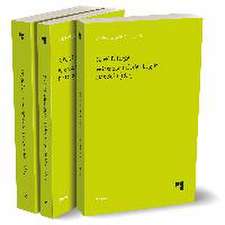
Wissenschaft der Logik. Band 1+2
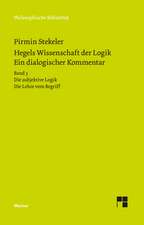
Hegels Wissenschaft der Logik. Ein dialogischer Kommentar. Band 3
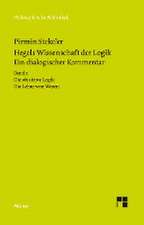
Hegels Wissenschaft der Logik. Ein dialogischer Kommentar. Band 2
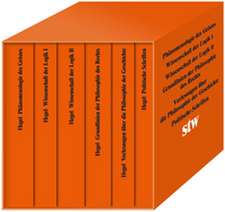
Die Hauptwerke: Phänomenologie des Geistes. Wissenschaft der Logik I. Wissenschaft der Logik II.Grundlinien der Philosophie des Rechts. Politische Schriften. Vorlesungen über die Philosophie der Geschichte.
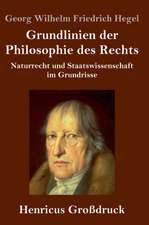
Grundlinien der Philosophie des Rechts (Großdruck)
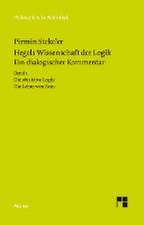
Hegels Wissenschaft der Logik. Ein dialogischer Kommentar. Band 1
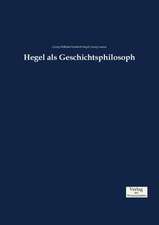
Hegel als Geschichtsphilosoph
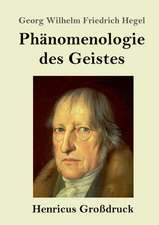
Phänomenologie des Geistes (Großdruck)
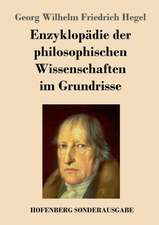
Enzyklopädie der philosophischen Wissenschaften im Grundrisse
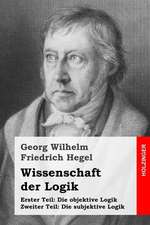
Wissenschaft Der Logik
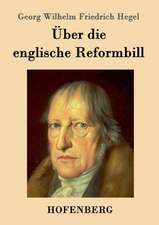
Über die englische Reformbill
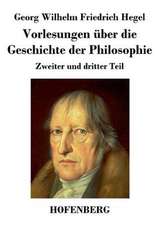
Vorlesungen über die Geschichte der Philosophie
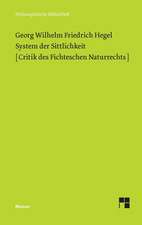
System der Sittlichkeit
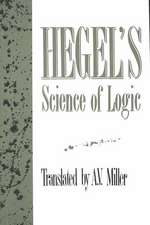
Hegel's Science of Logic
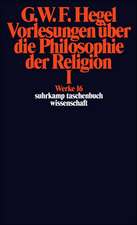
Vorlesungen über die Philosophie der Religion I
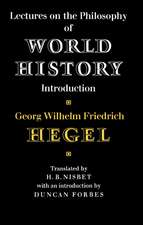
Lectures on the Philosophy of World History
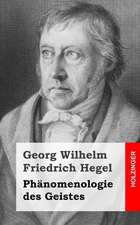
Phanomenologie Des Geistes
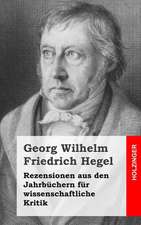
Rezensionen Aus Den Jahrbuchern Fur Wissenschaftliche Kritik
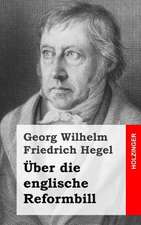
Uber Die Englische Reformbill
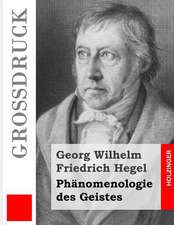
Phanomenologie Des Geistes (Grossdruck)
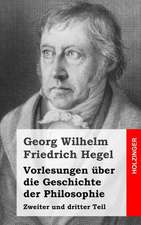
Vorlesungen Uber Die Geschichte Der Philosophie

Hegel's Philosophy of Mind
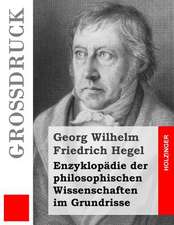
Enzyklopadie Der Philosophischen Wissenschaften Im Grundrisse (Grossdruck)
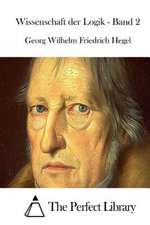
Wissenschaft Der Logik - Band 2

Wissenschaft Der Logik - Band I

La Poetique Par W.F. Hegel, Precedee D'Une Preface, Et Suivie D'Un Examen Critique
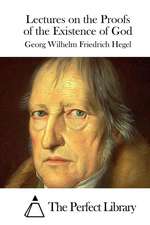
Lectures on the Proofs of the Existence of God
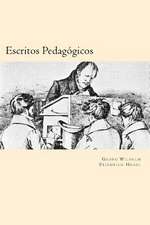
Escritos Pedagogicos (Spanish Edition)
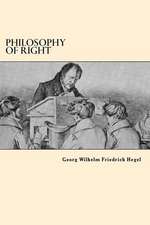
Philosophy of Right
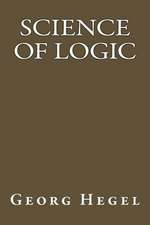
Science of Logic
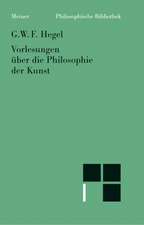
Vorlesungen über die Philosophie der Kunst
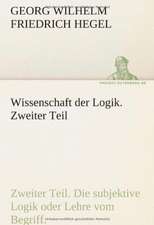
Wissenschaft Der Logik. Zweiter Teil: Im Schatten Napoleons
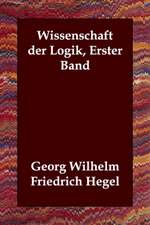
Wissenschaft Der Logik, Erster Band
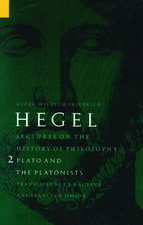
Lectures on the History of Philosophy, Volume 2: Plato and the Platonists
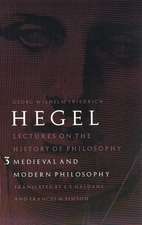
Lectures on the History of Philosophy, Volume 3: Medieval and Modern Philosophy

Hegel's Philosophy of Mind
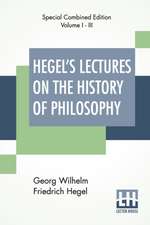
Hegel's Lectures On The History Of Philosophy (Complete)
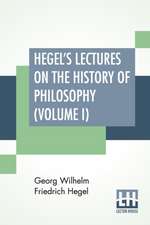
Hegel's Lectures On The History Of Philosophy (Volume I)
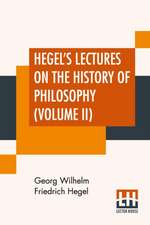
Hegel's Lectures On The History Of Philosophy (Volume II)
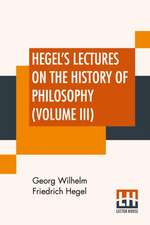
Hegel's Lectures On The History Of Philosophy (Volume III)

Hegel's Philosophy of Mind
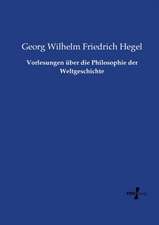
Vorlesungen über die Philosophie der Weltgeschichte
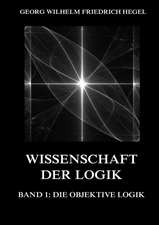
Wissenschaft der Logik, Band 1: Die objektive Logik

Wissenschaft der Logik, Band 2: Die subjektive Logik
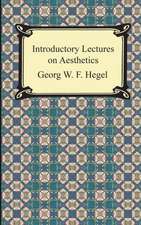
Introductory Lectures on Aesthetics
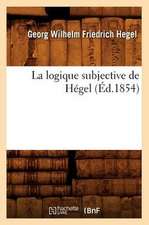
La Logique Subjective de Hegel (Ed.1854)
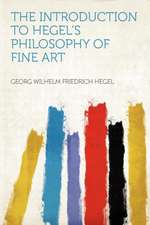
The Introduction to Hegel's Philosophy of Fine Art
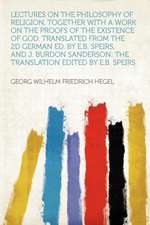
Lectures on the Philosophy of Religion, Together With a Work on the Proofs of the Existence of God. Translated From the 2d German Ed. by E.B. Speirs, and J. Burdon Sanderson
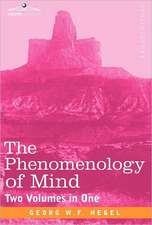
The Phenomenology of Mind (Two Volumes in One)
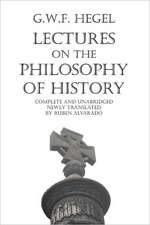
Lectures on the Philosophy of History
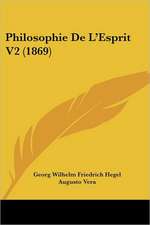
Philosophie De L'Esprit V2 (1869)
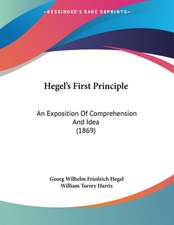
Hegel's First Principle
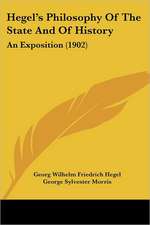
Hegel's Philosophy Of The State And Of History
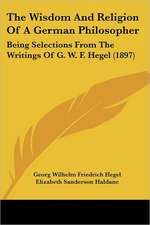
The Wisdom And Religion Of A German Philosopher
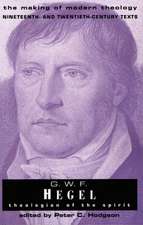
G.W. F. Hegel
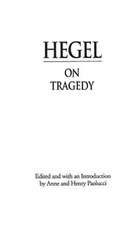
Hegel on Tragedy
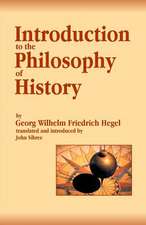
Introduction to the Philosophy of History
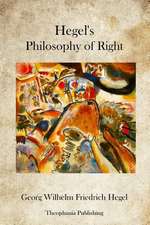
Hegel's Philosophy of Right
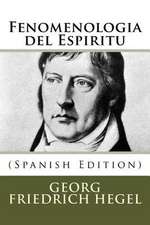
Fenomenologia del Espiritu (Spanish Edition)
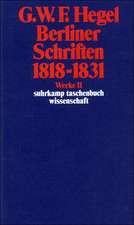
Berliner Schriften 1818 - 1831
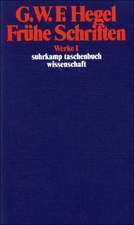
Werke in zwanzig Bänden

Enzyklopädie der philosophischen Wissenschaften II im Grundrisse 1830
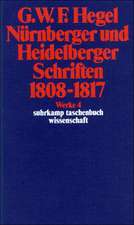
Nürnberger und Heidelberger Schriften 1808 - 1817
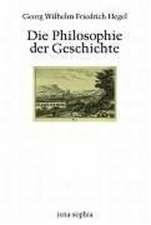
Philosophie der Geschichte

Gesammelte Werke 5
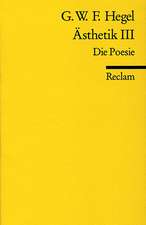
Ästhetik 3
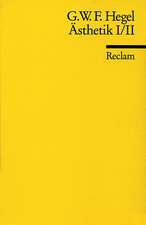
Ästhetik, I/II
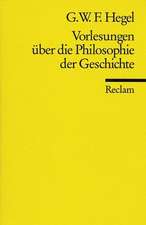
Vorlesungen über die Philosophie der Geschichte
- 1
- 2